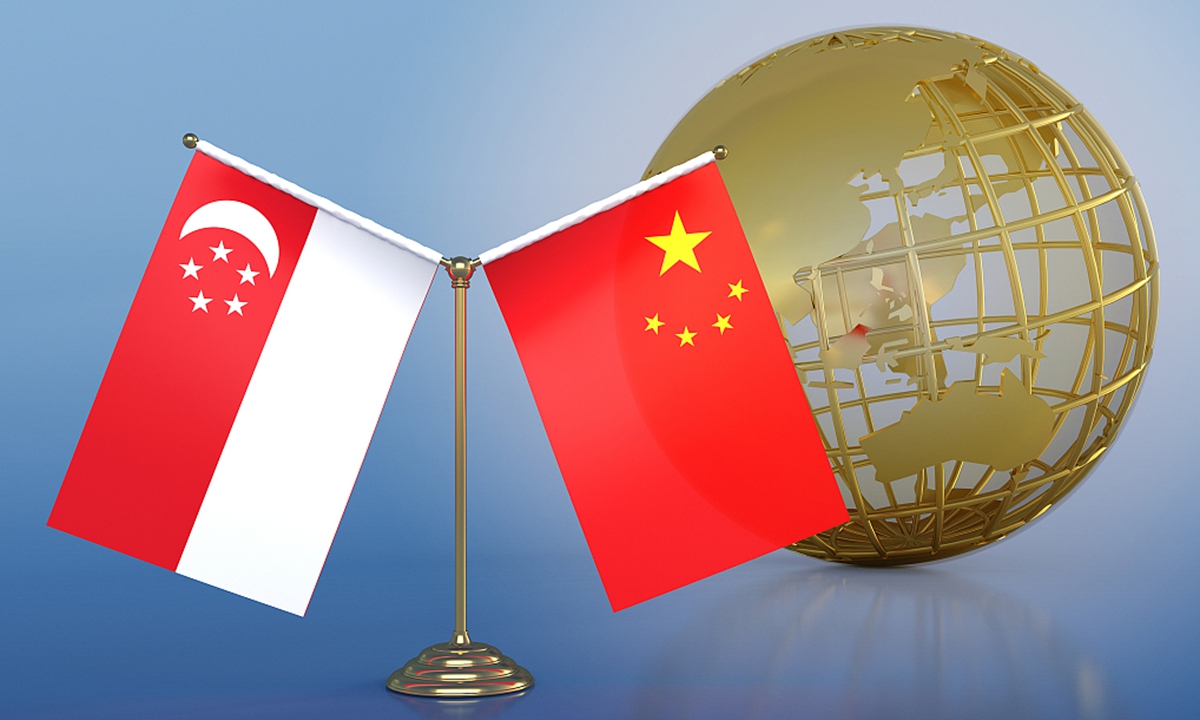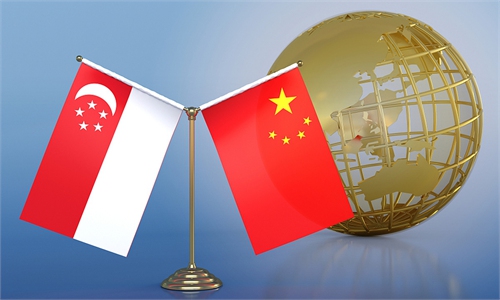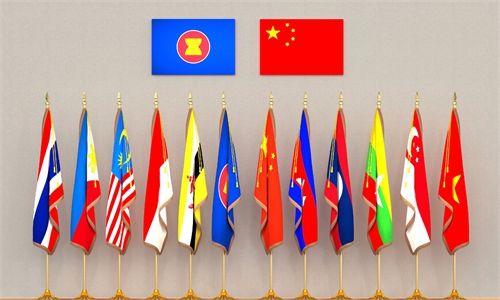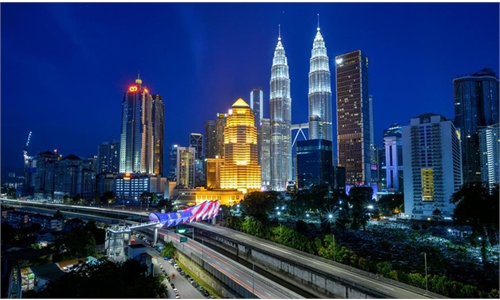Lee’s China visit highlights ASEAN countries’ concern of worsening regional security situation

China Singapore Photo:VCG
Singapore's Prime Minister Lee Hsien Loong landed in China on Monday, kicking off a six-day official visit to China, the first since the COVID pandemic. The visit is expected to play a role in forging post-pandemic China-Singapore relations and in the future economic, trade, and security development between China and Southeast Asian countries.Against the backdrop of soaring tensions between China and the US, and escalating geopolitical competition in the Asia-Pacific region, as one of the countries in Southeast Asia with the closest relationship with the US, how Singapore deals with the hotspot issues between China and the US will be the biggest highlight of this visit. For a long time, most Southeast Asian countries have been betting on both sides, relying on the US for security and China for the economy.
However, in recent years, the US has taken advantage of this typical mentality among Southeast Asian countries and has continuously expanded its military and defense cooperation in the Asia-Pacific region, exacerbating the tense security situation in the region and going against the original intention of Southeast Asian countries to rely on the US to maintain regional security and stability.
The series of moves of the US, including the promotion of QUAD, AUKUS, hyping up an outbreak of war in the Taiwan Straits, and escalated US-Philippines defense cooperation, have caused concerns among Southeast Asian countries - the possibility of a US-China military conflict in the region is now increasing because of unilateral US actions.
As one of the countries with the closest defense ties with the US in the region, Singapore is concerned about the rapidly deteriorating regional security situation. In an interview with China Central Television, Lee expressed that the world cannot afford a conflict between China and the US. It signals that Southeast Asian countries' mentality to rely on the US for security has been shaken. In the past few years, it has been proven that, despite the good intentions of Southeast Asian countries, the US has continuously introduced external allies to participate in its regional defense cooperation mechanisms aimed at countering China, exacerbating regional instability and insecurity.
If, during the ongoing visit, Lee makes suggestions on affairs such as the South China Sea and Taiwan question, and expresses his wish to see both China and the US to strengthen dialogue and communication and properly resolve disputes through peaceful means, it will set an example for Southeast Asian countries and encourage more regional countries to join the call for dialogue between China and the US and actions to reduce regional tensions. China welcomes all voices that support regional peace and ending conflicts and confrontations.
China also expects Singapore to play a more critical role within the ASEAN organization, actively promoting resolving internal issues within ASEAN and upgrading the overall development of China-ASEAN relations.
Finally, Singapore's attitude toward future technology cooperation with China will be another crucial factor in bilateral economic and political relations at a time when the US and Western countries wage a "technology war" against China. Unlike the US and the UK, Singapore does not regard technological cooperation with China as a "threat" to national security.
In Singapore, Chinese-made 5G communication equipment is widely adopted, and the Chinese company Alibaba is the parent company of Lazada, one of Singapore's e-commerce giants. China has submitted an official application to join the Digital Economy Partnership Agreement (DEPA) proposed by Singapore, New Zealand, and Chile in 2021, which is currently under review.
However, the US has intensified its comprehensive containment of Chinese high-tech companies under the pretense of "national security" and has spared no effort to pressure other countries into following. How to strengthen technological cooperation against this backdrop and achieve high-quality trade in digital and technical fields will be a challenging issue in China-Singapore relations.
This time, Lee, accompanied by a delegation of about 50 officials, will visit Guangdong, Hainan and Beijing, reflecting the importance of the Singapore government to developing relations with China.
According to the Prime Minister's Office of Singapore, Chinese President Xi Jinping and Premier Li Qiang will both meet with Lee during the latter's tour, suggesting China's expectations for bilateral ties. Whether Singapore can truly break away from the influence of the US policy of containing China and make choices based on its own national interests is the key to ushering in a turning point for China-Singapore relations in the post-pandemic era.
The author is a visiting senior fellow at ISEAS - Yusof Ishak Institute, Singapore. He is also Associate Professor at the School of International Studies at Nanjing University.opinion@globaltimes.com.cn



